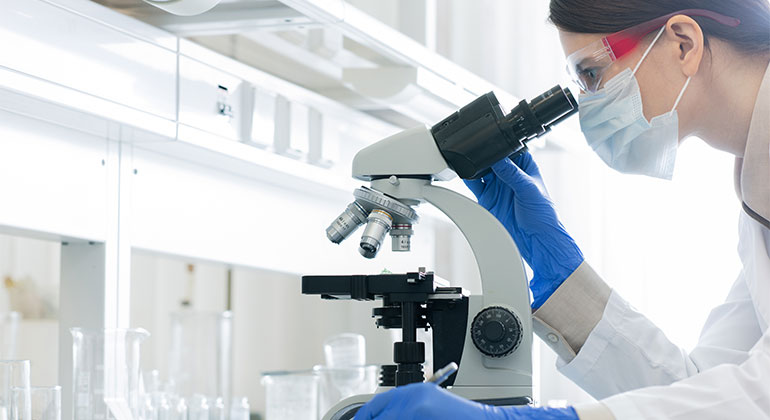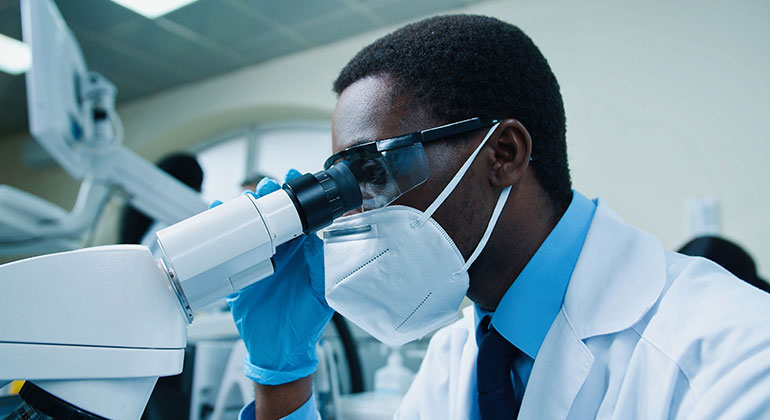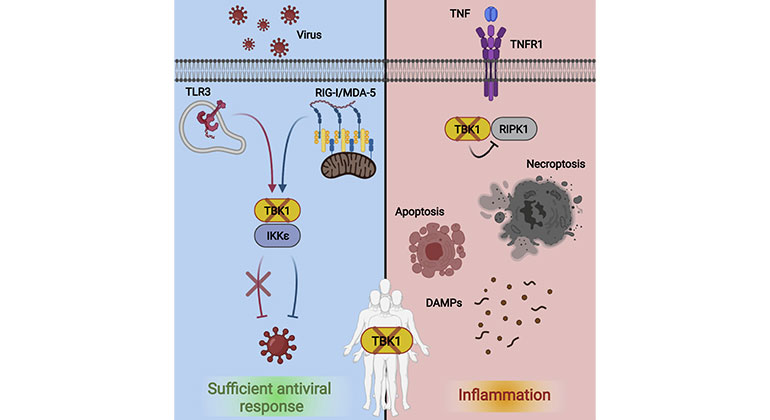Blood Test May Predict Severity of Peanut and Seafood Allergies
A blood test may help to predict which people will have severe allergic reactions to foods according to a new study led by Mount Sinai researchers and published online today in the The Annals of Allergy, Asthma & Immunology.
To detect food allergies, physicians typically use skin prick tests or blood tests that measure levels of allergen-specific IgE (sIgE), a protein made by the immune system. However, these tests cannot predict the severity of allergic reactions. Oral food challenges, in which specific allergens are given to patients to ingest under physician supervision to test for signs or symptoms of an allergic reaction, remain the gold standard for diagnosing food allergy even though the tests themselves can trigger severe reactions.
In the newly published study, Mount Sinai researchers from The Mindich Child Health and Development Institute and the Jaffe Food Allergy Institute report that by counting the numbers of one type of immune cell activated by exposure to a food, a blood test may help to predict the severity of each person’s allergic reaction. The immune cell measured is the basophil, and the blood test, the basophil activation test or BAT, requires only a small blood sample and provides quick results.
“Having blood drawn for BAT is a much less difficult procedure than food challenges.” says first author Ying Song, MD. “Although food challenges are widely practiced, they carry the risk of severe allergic reactions, and we hope that BAT can be developed further to provide accurate information in a safe manner,” says Dr. Song, also a researcher in the Jaffe Food Allergy Institute at The Mount Sinai Hospital.
“Although the blood basophil activation test has been shown to be an important addition to the tools available for discriminating between allergic and non-allergic individuals and predicting the severity of food allergy reactions, at this time it is only approved for research purposes,” says senior author Xiu-Min Li, MD, Professor of Pediatrics at the Icahn School of Medicine.
Investigators took blood samples from 67 patients, ages 12 to 45 years, who also underwent a food challenge with a placebo or with peanut, tree nut, fish, shellfish, or sesame. The goal was to see if the BAT results would correlate with food challenge results. The study was double blinded, so neither researchers nor patients knew which person received a placebo or one of the allergens, which were administered at random.
Before the randomized food challenge, researchers collected blood from all patients and analyzed the results, which showed a strong correlation between BAT data and food challenge severity scores. This finding provides evidence that BAT may be able to reduce the need for food challenges not only for peanut, but also for tree nut, fish, shellfish, and sesame and perhaps for other foods.
About the Mount Sinai Health System
Mount Sinai Health System is one of the largest academic medical systems in the New York metro area, with more than 43,000 employees working across eight hospitals, over 400 outpatient practices, nearly 300 labs, a school of nursing, and a leading school of medicine and graduate education. Mount Sinai advances health for all people, everywhere, by taking on the most complex health care challenges of our time — discovering and applying new scientific learning and knowledge; developing safer, more effective treatments; educating the next generation of medical leaders and innovators; and supporting local communities by delivering high-quality care to all who need it.
Through the integration of its hospitals, labs, and schools, Mount Sinai offers comprehensive health care solutions from birth through geriatrics, leveraging innovative approaches such as artificial intelligence and informatics while keeping patients’ medical and emotional needs at the center of all treatment. The Health System includes approximately 7,300 primary and specialty care physicians; 13 joint-venture outpatient surgery centers throughout the five boroughs of New York City, Westchester, Long Island, and Florida; and more than 30 affiliated community health centers. We are consistently ranked by U.S. News & World Report's Best Hospitals, receiving high "Honor Roll" status, and are highly ranked: No. 1 in Geriatrics and top 20 in Cardiology/Heart Surgery, Diabetes/Endocrinology, Gastroenterology/GI Surgery, Neurology/Neurosurgery, Orthopedics, Pulmonology/Lung Surgery, Rehabilitation, and Urology. New York Eye and Ear Infirmary of Mount Sinai is ranked No. 12 in Ophthalmology. U.S. News & World Report’s “Best Children’s Hospitals” ranks Mount Sinai Kravis Children's Hospital among the country’s best in several pediatric specialties.
For more information, visit https://www.mountsinai.org or find Mount Sinai on Facebook, Twitter and YouTube.

Researchers Identify Potential Target for Treatment Among Patients With Type 2 Diabetes
Aug 04, 2022 View All Press Releases
Mount Sinai Appoints Bruce D. Gelb, MD, as Dean for Child Health Research
May 17, 2022 View All Press ReleasesMount Sinai Researchers Discover Treatment Option for Rare Genetic Disorder
Aug 04, 2020 View All Press ReleasesIcahn School of Medicine at Mount Sinai Welcomes New Chief of Clinical Immunology
Oct 31, 2019 View All Press Releases
